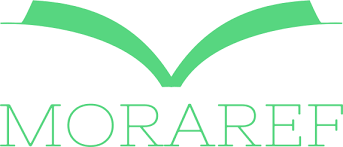Pembelajaran Membaca Al-Qur’an Menggunakan Metode Iqro’ untuk Mengurangi Angka Buta Huruf Al-Qur’an
Abstract
Society is the pioneer, determinant of progress, and the welfare of a state and nation, therefore the government of a country must pay attention to the welfare of the community, especially the young generation that has just grown up among the community. It is this young generation that will determine the fate of the nation and state in the future, because today's youth are the leaders of the future. Our country, Indonesia, has a lot of diversity in religion, culture, and so on, Indonesia is also a religious country, it can be seen in the ideology of the nation, namely Pancasila, in the first principle which reads "Belief in One God", however, many Indonesian people who are the majority of adherents of Islam cannot read the Qur'an, or in other words they are illiterate al-Qur'an with a percentage of 65% of 223 million Muslims unable to read the Qur'an, and this is a serious problem for Muslims in Indonesia. The purpose of this service is to provide guidance and learning to the children of the nation's generation to read the Qur'an properly and correctly, using the Iqro' method which refers to the "Child Centered" education pattern which provides the widest possible opportunity for each learner to develop optimally according to ability, to improve the quality of the younger generation on the religious side in accordance with the first principle of Pancasila, and reduce the number of Qur'an illiteracy in Indonesia.
Downloads
References
Badruzzaman, M. Yunus, & Eni Z., (2019). Strategi pengentasan buta huruf Alqur’an di kalangan pelajar. Cirebon: LP2I IAI Bungan Bangsa Cirebon.
Febri N., Rini, Ratnawati. (2021). Strategi murabbi dalam meningkatkan kemampuan membaca Al-qur’an mahasantri, 4(1), 78-89.
Gusman, (2017). Analisis faktor penyebab kurangnya mahasiswa dalam baca tulis Al-Qur’an di MTsN Kedurang Bengkulu Selatan, 2(2), 231-238.
https://id.wikipedia.org/wiki/Al-Qur%27an
Iswandi. (2023). Buta huruf Al-Qur’an masih menimpa banyak umat Islam. UPT Perpustakaan Universitas Bung Hatta, https://pustaka.bunghatta.ac.id/index.php/457-buta-huruf-al-quran-masih-menimpa-banyak-umat-islam
Muhammad Y., Ade J., (2016). Studi Al-Qur’an. Pekanbaru: CV. Asa Riau.
Nur’ani A., Hamdan J., Muh. Wayong, Ulfiani R. (2021). Peranan Orang tua dalam menumbuhkan minat membaca al_Qur’an anak di kota Makassar, 6(1).
Oon S. (2020). Studi komparatif pelaksanaan bimbingan baca tulis al-Qur’an melalui metode Ummi dan metode Iqro’ di sekolah menengah kejuruan Cendekia Utama, 2(2), 203-225. Doi: https://doi.org/10.47453/eduprof.v2i2.27
Suparno, Sapto, P., Septha, S., Samuel. (2017). Implementasi nilai-nilai Pancasila pada sila pertama dala kehidupan masyarakat diDesa Tanjung Putar Kecamatan Kayan Hilir Kabupaten Sintang, 6(2), 153-163.
Siti A. (2020). Peranan pemerintah dalam memberantas buta aksara Al-Qur’an, 3(2), 273-288.
Siti N., A. Sobandi. (2016). Minat belajar sebagai determinan hasil belajar siswa, 1(1), 128-135.
Suwendi, (2016). Relasi agama dan negara, direktorat pendidikan diniyah dan pondok pesantren kementrian agama RI.
Suci A., Hemawati, Nurhasanah, (2023). Pengaruh penggunaan metode Iqro’ terhadap kemampuan membaca Al-Qur’an pada peserta didik di TPQ Aisyiyah Binjay, 4(1), 32-54.
Via N.A. (2023). Metode Iqro’ untuk meningkatkan kemampuan membaca Al-Qur’an pada anak usia dini, 2(1), 91-101.
Zulfitria, Zeinal A. (2018). Penerapan metode iqro sebagai kemampuan dasar membaca Al-qur’an di TK Hiama Kids, 57-66.
Copyright (c) 2023 Rappe, Ahmad Munawwir, Mappasiara, Erlangga Syarifuddin, Hasriati

This work is licensed under a Creative Commons Attribution-ShareAlike 4.0 International License.
- Authors retain copyright and grant the journal right of first publication with the work simultaneously licensed under a Creative Commons Attribution License that allows others to share the work with an acknowledgement of the work's authorship and initial publication in this journal.
- Authors are able to enter into separate, additional contractual arrangements for the non-exclusive distribution of the journal's published version of the work (e.g., post it to an institutional repository or publish it in a book), with an acknowledgement of its initial publication in this journal.
- Authors are permitted and encouraged to post their work online (e.g., in institutional repositories or on their website) prior to and during the submission process, as it can lead to productive exchanges, as well as earlier and greater citation of published work (See The Effect of Open Access).








